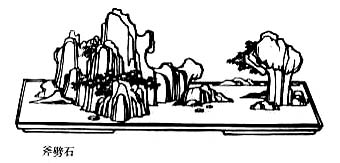詩
經
Shi Jing 
 – Le Canon des Poèmes
– Le Canon des Poèmes
Le plus ancien recueil connu de poésie chinoise, plus de trois cents chansons, odes et hymnes. Tr. Legge (en) et Granet (fr, incomplète).
Shijing II. 1. (162)
My four steeds advanced without stopping ;
The way from Zhou was winding and tedious.
Did I not have the wish to return ?
But the king's business was not to be slackly performed ;
And my heart was wounded with sadness.
My four steeds advanced without stopping ;
They panted and snorted, the white steeds black-maned.
Did I not have the wish to return ?
But the king's business was not to be slackly performed ;
And I had not leisure to kneel or to sit.
The Filial doves keep flying about,
Now soaring aloft, and now descending,
Collecting on the bushy oaks ;
But the king's business was not to be slackly performed ;
And I had not leisure to nourish my father.
The Filial doves keep flying about,
Now flying, now stopping,
Collecting on the bushy medlars ;
But the king's business was not to be slackly performed ;
And I had not leisure to nourish my mother.
I yoked my four white steeds, black-maned ;
They hurried away with speed.
[But] did I not wish to return ?
Therefore I make this song,
Announcing my wish to nourish my mother.
Legge 162

Le Canon des Poèmes – Shi Jing II. 1. (162) – Chinois on/off – Français/English
Alias Shijing, Shi Jing, Book of Odes, Book of Songs, Classic of Odes, Classic of
Poetry, Livre des Odes, Canon des Poèmes.
Le Canon des Poèmes, Les Entretiens, La Grande Étude, Le Juste Milieu, Les Trois Caractères, Le Livre des Mutations, De la Voie et la Vertu, 300 poèmes Tang, L'Art de la guerre, Trente-six stratagèmes
Bienvenue, aide, notes, introduction, table.
Index – Contact – Haut de page
